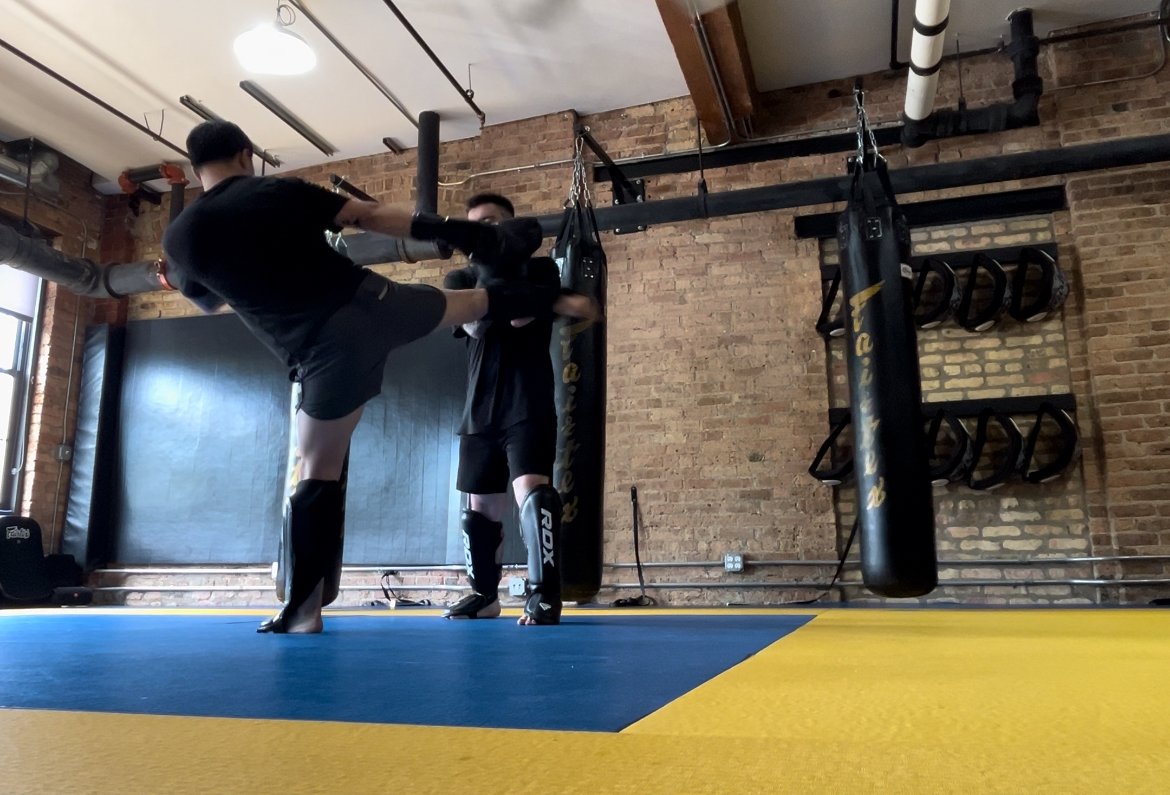How can Exercise Help with Alzheimer's and Dementia?
By Andy Park DC,
Dynamic Neuromuscular Stabilization (DNS) Specialist.
How can Exercise Help with Alzheimer's and Dementia?
Exercising For Brain Health
Exercise is great for your body, but I think what gets overlooked all too often is how much it can do for your mind. In recent years it has been found that cardiovascular exercise that also provides a mental challenge can be protective when it comes to Alzheimer’s and dementia. A great example of this type of exercise and one that I enjoy personally is kick boxing. Let us investigate then how kickboxing can be good for our brains in the long term! (Assuming you are not competing at a high level and are experiencing repetitive trauma to the brain).
Kickboxing is Good for your Brain!
Kickboxing can be beneficial for brain health in several ways:
Physical Exercise: Kickboxing involves a combination of aerobic and anaerobic exercise, which promotes cardiovascular health. Regular exercise increases blood flow to the brain, delivering oxygen and nutrients that support brain function and overall cognitive health.
Coordination and Balance: Kickboxing requires coordination between the upper and lower body, as well as balance to maintain proper form during kicks and punches. Practicing these movements can enhance coordination and balance, which are important for brain health and reducing the risk of falls, especially as we age.
Stress Reduction: Like other forms of exercise, kickboxing can help reduce stress and anxiety levels. Physical activity stimulates the production of endorphins, neurotransmitters in the brain that are known to improve mood and reduce stress. Lowering stress levels can have positive effects on overall brain health and cognitive function.
Cognitive Engagement: Learning and practicing kickboxing techniques involves mental engagement and concentration. Remembering combinations, anticipating an opponent's moves, and reacting quickly all require cognitive skills such as memory, attention, and decision-making. Engaging in activities that challenge the brain in this way can help improve cognitive function and potentially reduce the risk of cognitive decline.
Social Interaction: Participating in kickboxing classes or training sessions can provide social interaction, which is important for brain health. Socializing can help reduce feelings of loneliness and isolation, which have been linked to negative effects on cognitive function. Additionally, social interaction can stimulate the brain and promote mental sharpness.
Overall, kickboxing can be a fun and effective way to improve both physical fitness and brain health. However, it's important to practice safely and use proper technique to avoid injury.
How does Kickboxing protect against Alzheimer’s?
Before we talk specifically about why kickboxing is something that could help protect against cognitive decline in the long run we have to talk about a specific substance in your brain called brain-derived neurotrophic factor (BDNF). Brain-derived neurotrophic factor (BDNF) plays a significant role in brain health and has been implicated in the prevention of Alzheimer's disease and dementia through several mechanisms:
Neuroprotection: BDNF supports the survival and maintenance of existing neurons in the brain. It promotes the growth of new neurons and synapses, a process known as neurogenesis and synaptic plasticity. These mechanisms are crucial for maintaining cognitive function and memory, and they may help counteract the neurodegenerative processes associated with Alzheimer's disease and dementia.
Enhanced Learning and Memory: BDNF is involved in the formation of new memories and the consolidation of existing ones. Higher levels of BDNF are associated with improved learning and memory performance. By supporting synaptic plasticity and neural connectivity, BDNF may help mitigate the cognitive decline seen in Alzheimer's disease and dementia.
Reduction of Amyloid-Beta Plaque Formation: Alzheimer's disease is characterized by the accumulation of amyloid-beta plaques in the brain, which are toxic to neurons and disrupt normal brain function. Studies have suggested that BDNF may play a role in reducing the production and accumulation of amyloid-beta plaques, thereby potentially slowing the progression of Alzheimer's disease.
Anti-inflammatory Effects: Chronic inflammation in the brain is believed to contribute to the development and progression of Alzheimer's disease and other forms of dementia. BDNF has been shown to have anti-inflammatory properties, which may help protect neurons from damage caused by inflammation and oxidative stress.
So how is kickboxing related to BDNF? Kickboxing can potentially help with the release of brain-derived neurotrophic factor (BDNF), a protein that plays a crucial role in promoting the growth, survival, and function of neurons in the brain. Here's how kickboxing may contribute to the release of BDNF:
Exercise-Induced BDNF Release: Physical exercise, including kickboxing, has been shown to stimulate the release of BDNF in the brain. The intensity and duration of exercise are important factors in triggering this response. Kickboxing, with its combination of aerobic and anaerobic activity, can provide an intense workout that promotes the release of BDNF.
Aerobic Exercise Component: Kickboxing involves aerobic components such as jumping, kicking, and punching, which elevate heart rate and increase oxygen consumption. Aerobic exercise has been linked to increased BDNF production, particularly in regions of the brain associated with learning and memory.
High-Intensity Interval Training (HIIT): Many kickboxing workouts incorporate elements of HIIT, which involves short bursts of intense activity followed by brief recovery periods. HIIT has been shown to be particularly effective in promoting BDNF release compared to continuous moderate-intensity exercise.
Stress Reduction: Kickboxing can help reduce stress levels, and chronic stress has been associated with decreased BDNF levels. By lowering stress through physical activity and the release of endorphins, kickboxing may indirectly support the maintenance or increase of BDNF levels in the brain.
Mental Engagement: Learning and practicing kickboxing techniques require mental engagement, concentration, and coordination. Activities that challenge the brain in this way have been associated with increased BDNF levels. The cognitive stimulation provided by kickboxing may contribute to the release of BDNF.
Overall Health Benefits: Improving overall physical fitness through kickboxing can lead to better cardiovascular health, reduced risk of chronic diseases, and improved mood—all of which can indirectly support the release of BDNF and overall brain health.
While kickboxing can potentially promote the release of BDNF, it's important to note that individual responses may vary, and the effects may also depend on factors such as frequency, intensity, and duration of exercise. Additionally, a balanced lifestyle that includes adequate rest, nutrition, and mental stimulation is essential for optimal brain health.
We hope you found this article to be enlightening! If you’re an athlete or an active individual who is also experiencing an injury or want to improve your performance, then don’t wait any longer. Give us a call (773-296-2766) or text us at (773-692-0670) to book your FREE Discovery call or Movement Assessment today!
Do this next!
Share this Article with a Friend or Family member who has been dealing with a sports injury, pregnancy related pain or dysfunction, or any other type of physical issue (i.e. hip or knee pain, low back pain, shoulder pain etc.) We can help!
Call our office TODAY at (773) 296-2766 to book your New Patient appointment or schedule a free chat (discovery call) with us to see if we can help you out or if you have other questions about care or costs. You can book either by clicking here!
Keep an eye out for out next article!

